By James Hererra, Ph.D.
DLC-SAVA Conservation Coordinator
Published March 8, 2024
March 8 is International Women’s Day, referred to as ‘Valo Mars’ in Madagascar. Women’s groups across the SAVA region celebrated Women’s Day with the DLC-SAVA Conservation project, supporting several local organizations that are working towards conserving the environment in Madagascar.
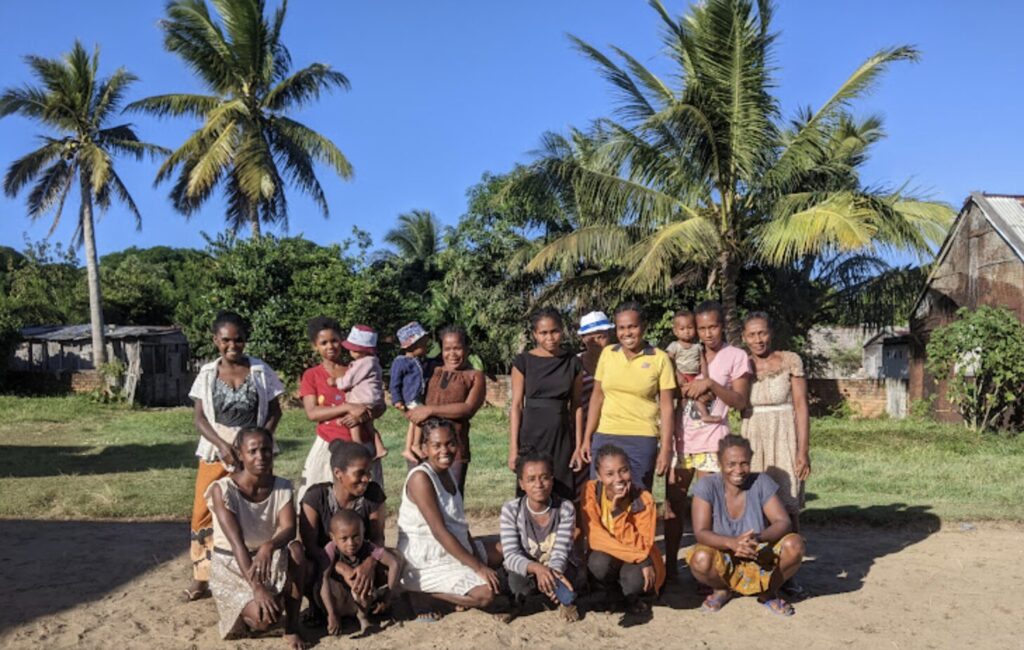
Women’s farming group in Ampahana, Madagascar.
Since 2019, the DLC-SAVA Conservation team has been partnering with the Ampahana community to diversify livelihoods through training in market vegetables, chicken husbandry, agroforestry, and more. (Below, a member shows off her chicken coop.) The women’s farming group welcomed the DLC’s team to create a demonstration site where they could grow diverse foods in a small space using agroecology techniques.
Called Fikambanana Liampivoarana Ampahana—the Association Interested in Progress—all members speak to the benefits of using agroecology techniques, as well as to the power of women in agriculture!
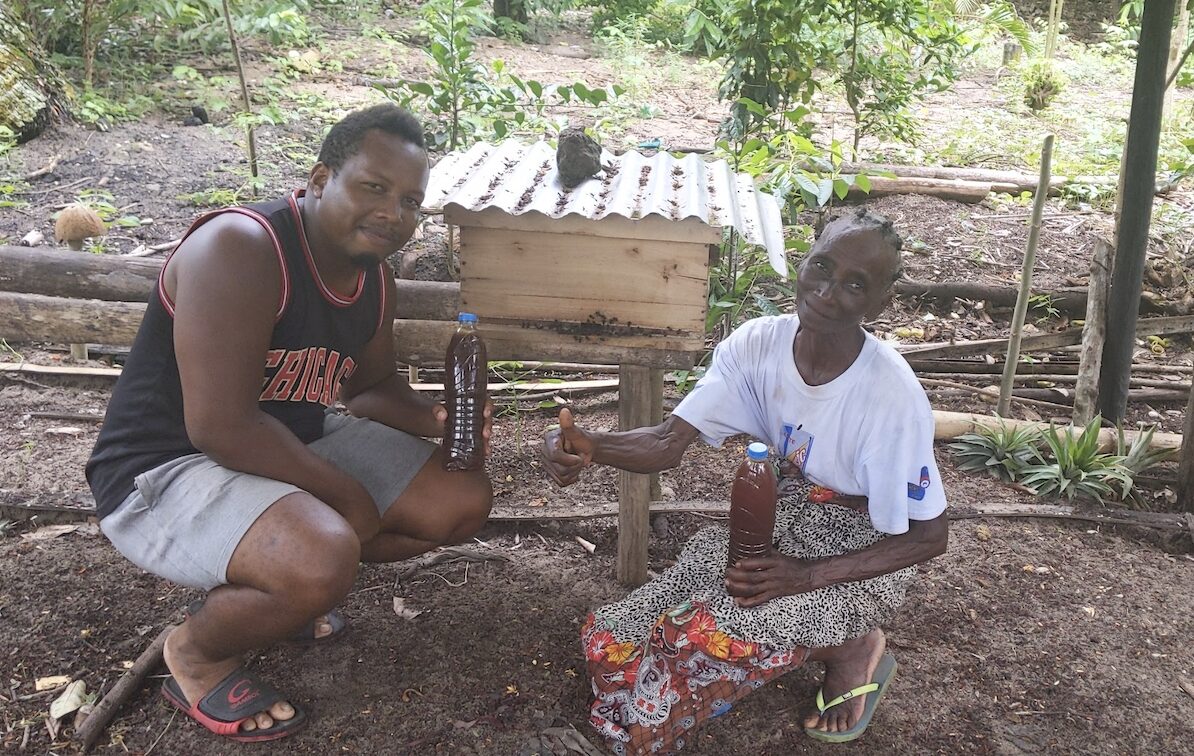
The women’s group allows *some* men, including those are producing honey through bee-keeping and generating income.
We’re excited to initiate a new project at DLC-SAVA: creating sustainable charcoal from bamboo! This week, the team is building a modernized charcoal-making stove, not too different from a big brick pizza oven. Women and men have been participating in the project since the beginning. Today, the men did the dirty work while the women sang traditional songs and cheered on the men as the project nears completion.
Local female scholars are listening deeply to the challenges faced by mothers, infants, and health professionals. Through our research, we’re finding high rates of food insecurity, as well as women and children suffering from iron-deficiency anemia. Our collaborating scholars, themselves women and mothers from the region, teach about healthy, balanced diets, nutrient-dense infant porridge, and home gardening to provide all the necessary ingredients.
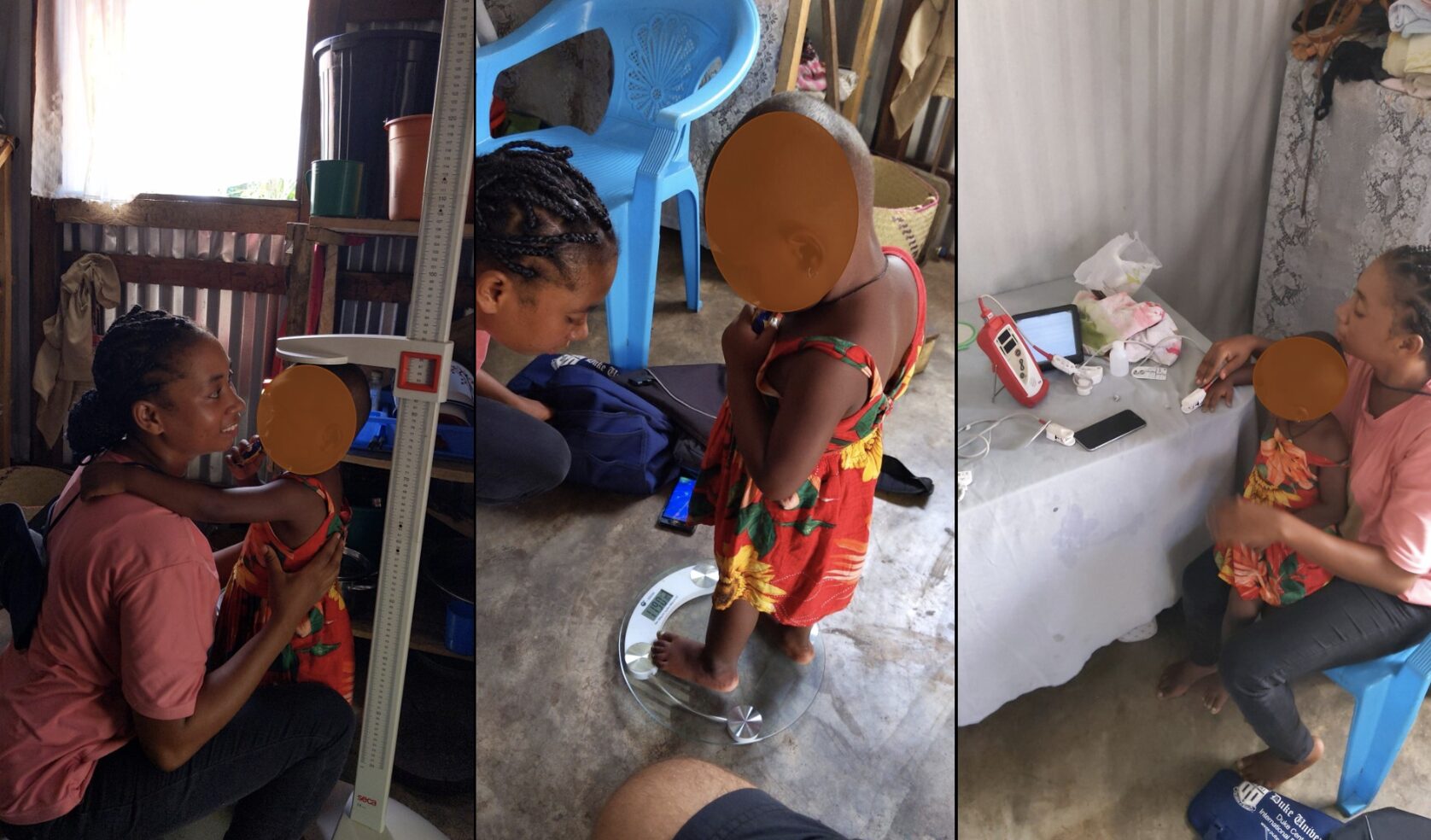
Angele collecting data.
The women in our collaborative network also teach environmental education across multiple generations, explaining about the value of lemurs and the environment for people’s health and livelihoods.
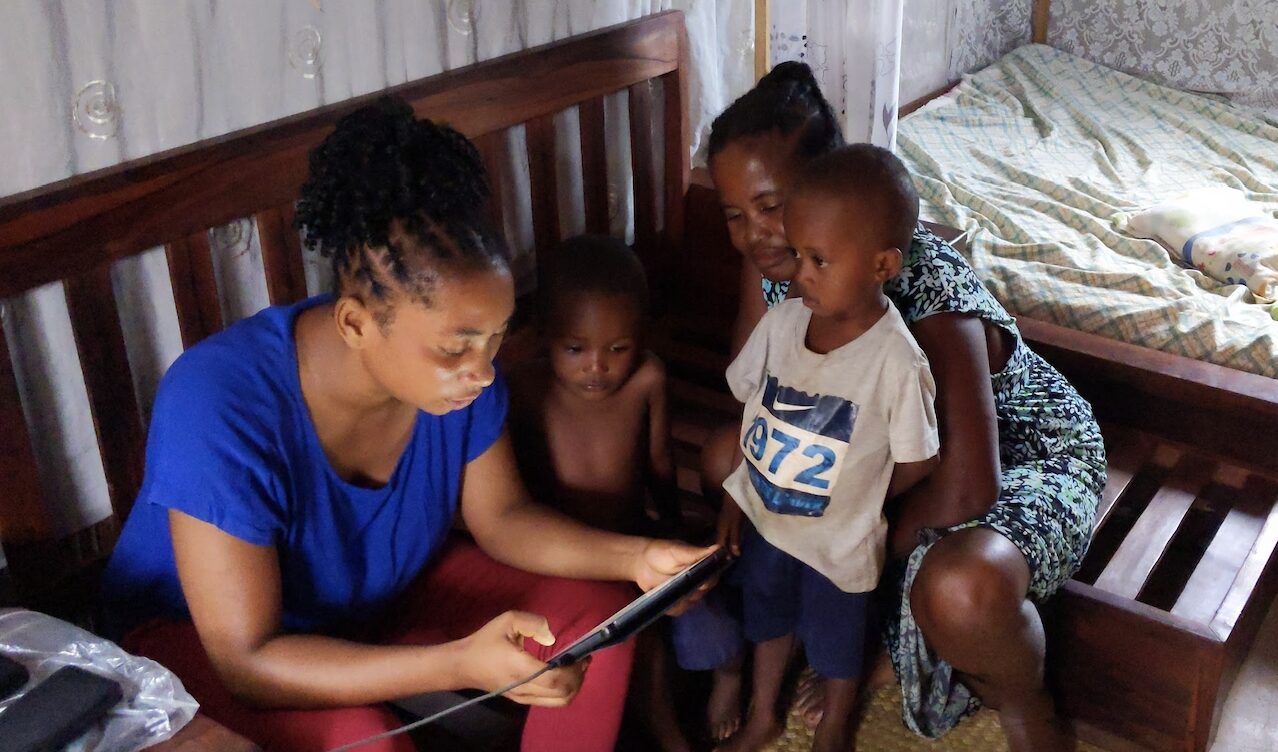
Angele discusses the value of the environment for human health.
The women in the Ministry of Environment in Sambava created their own civil society organization, called Women for Environment and Development. They plan annual projects with local partners, including reforestation. 15 of their members encouraged local women’s groups to plant trees and restore the land, and attended an annual conference to discuss the overall theme of “Women for Development.”
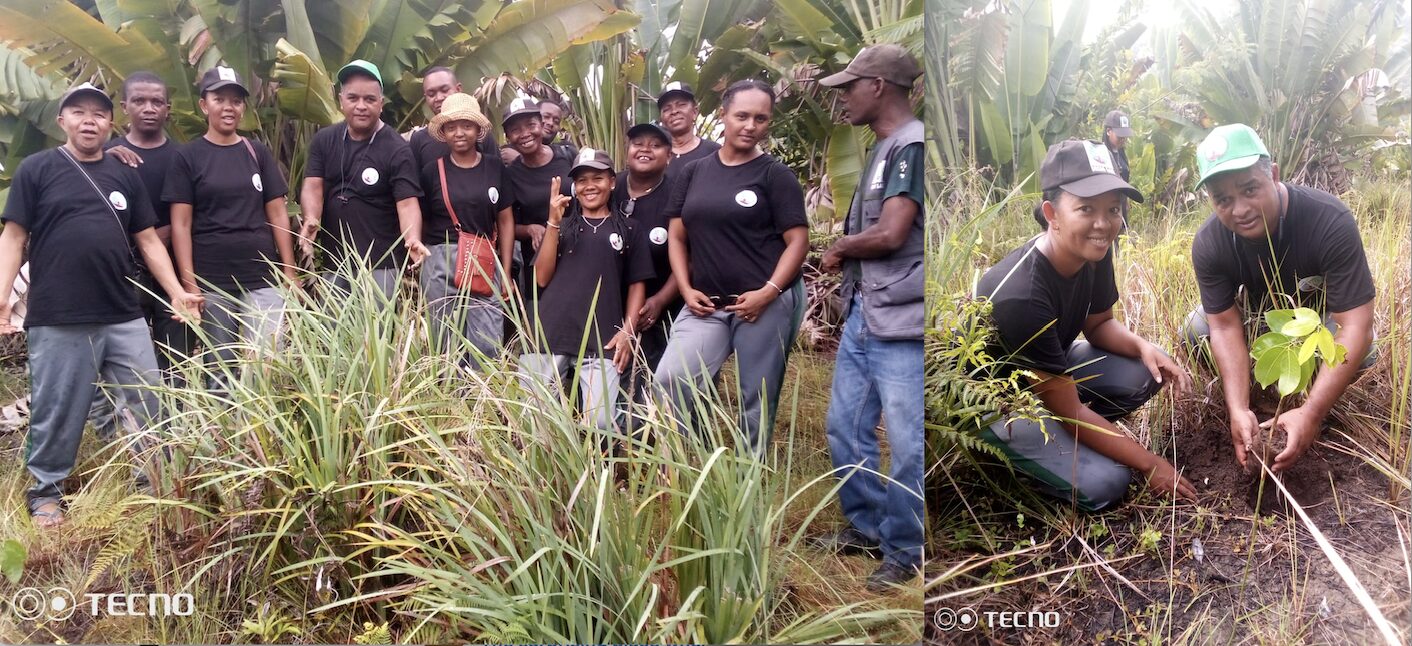
Members of the civil society organization Women for Environment and Development encourage local women’s groups to plant trees and restore the land.
For supporting all these activities, we thank the McQuade Foundation, Re:wild, TriCEM, General Mills, and so many generous DLC supporters!
All people in the photographs gave oral and/or written consent to have their photographs or videos taken as part of an informed consent form approved by the Duke University Institutional Review Board.

